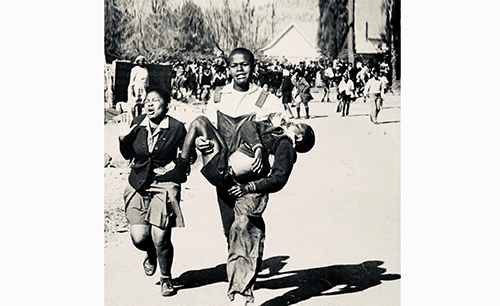This year, as we celebrate the Day of the African Child under the theme ‘Eliminating harmful practices affecting children: Progress on Policy and Practice since 2013’, we recall the 16 June 1976 uprising in Soweto, South Africa, where high school pupils protested against apartheid-enforced Afrikaans as the medium of instruction. This consequently resulted in the public killing of unarmed young protesters by police officials.
The commemoration represents an opportunity to take stock of what has been done with regards to the adoption of policies and practices in protecting children, and further reflects on what needs to be done to advance the life of an African child to the fullest of his or her potential.
The chairman of the health committee of the children’s parliament and ambassador of #BeFree, Rivaldo Kavanga, said in celebrating this day, African countries have to reflect on the advancements they have made in protecting children’s rights and realising them.
“We further also reflect on the theme for this year’s Day of the African Child, and look at how far we have come as a continent towards eliminating harmful practices such as child labour, violence against children and child rape, commonly known as child marriage. We also take a moment to reflect how far we have come towards making laws and policies that protect and realise the rights of children,” he stated.
On his part, debate coach Ivan Limbo wants better awareness on the rights of children, saying sometimes children don’t understand what their rights are.
“This is why they get exploited, which is not necessarily their fault. Another important fact is letting kids know they can report certain crimes, and where they can report them,” he added.
In hindsight, the day also provides a chance to ponder the harmful practices affecting African children who are at risk of such detrimental customs daily, causing physical and mental scars.
Harmful practices refer to activities, including behaviour and attitudes, which negatively affect the fundamental rights of children such as their right to life, health, dignity, education and physical integrity. Examples of these are child marriages, killing of children with albinism, female genital mutilation, breast flattening, breast ironing and misogyny, amongst others, and are usually performed in accordance with tradition, faith or beliefs, and religion. These practices are usually seen as morally acceptable to some sectors within society.
Harmful practices deprive children of their childhood, and denies them a chance to determine their future. It also threatens the wellbeing of individuals, families and societies.
In Namibia, one of the other major issues faced by children is physical abuse and sexual molestation. On a daily basis, we are confronted with news reports about child rape, committed even by biological fathers of these children. In January this year, 131 cases were reported, 95 in February, while 120 rape cases were reported in March countrywide.
This disheartening practice continues unabated and should be classified as a crisis, warranting our government to review the laws and punishment for these hideous crimes. Sometimes, young girls offer themselves for sex just for economic reasons, mainly not to go to bed on an empty stomach.
Another huge crisis faced by many African children is child marriages, which is the practice of girls and boys under the age of 18 being married off. It refers to both formal marriages and informal unions.
Within the Namibian context, child marriages are largely perpetuated by cultural norms, religion and gender inequality. The girl-child is, more often than not, on the short receiving end of the stick. Statistically having overall less access to education, young girls are significantly socio-politically disadvantaged, essentially making them more attractive targets of child marriage.
Not to be misunderstood that we are in favour of the idea, but if child marriages cannot be avoided due to certain customary laws, what could be considered is to at least allow the girl-child to continue her education.
Additionally, house-to-house inspections as well as at some schools by the government should be done in order to engage learners on their situations there, and attempts to find impactful solutions to assist children in need of help. Knowingly, only through engaging children and finding out what it is they go through can we truly accommodate them and achieve the aims of our child protection policies in order to safeguard our children.
Looking further, the act of corporal punishment in schools needs to be weighed in terms of its benefits.
Through these celebrations of the Day of the African Child, society, non-governmental organisations, governments, the African Union, United Nations agencies and other relevant stakeholders need to reassess their actions in eliminating all harmful practices against children.
Together, we can help Namibia become a safe space for the upcoming generation.
* The article was written by Christofina Magongo, Abraham Angula and Siska Kanyama who spent this week at New Era to produce this special three-page focus on the Day of the African Child.



